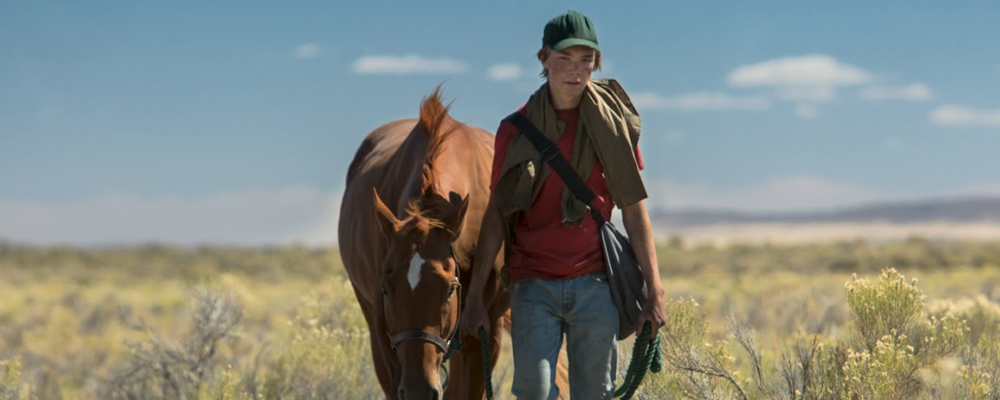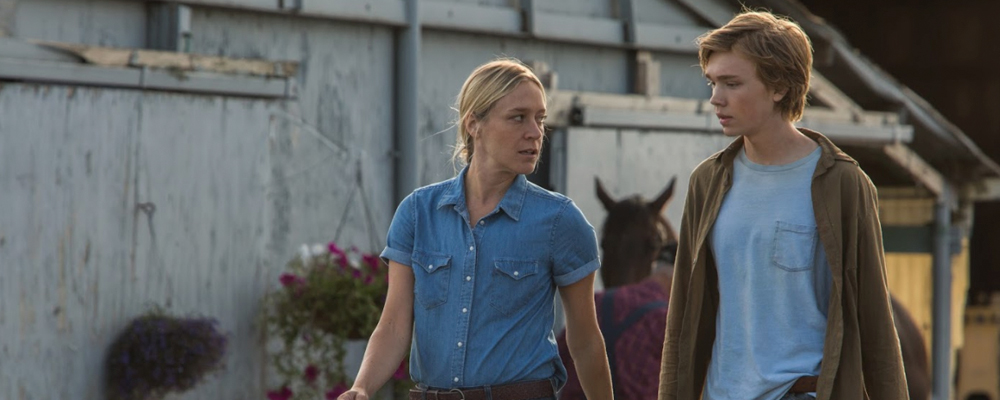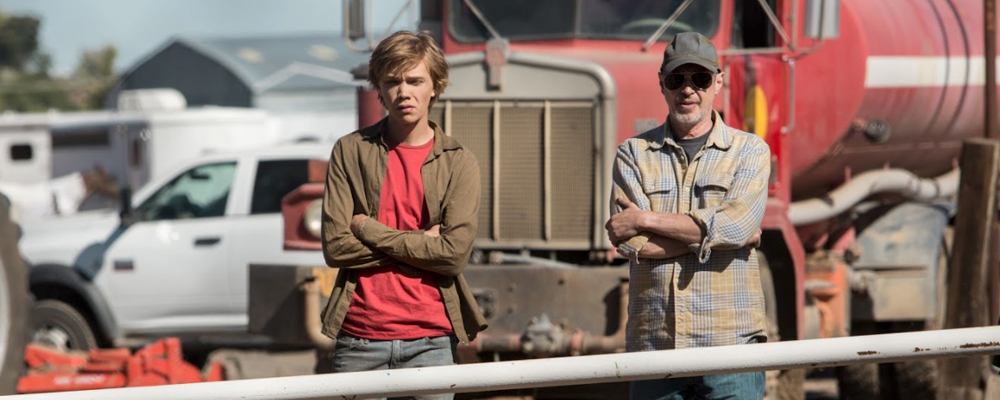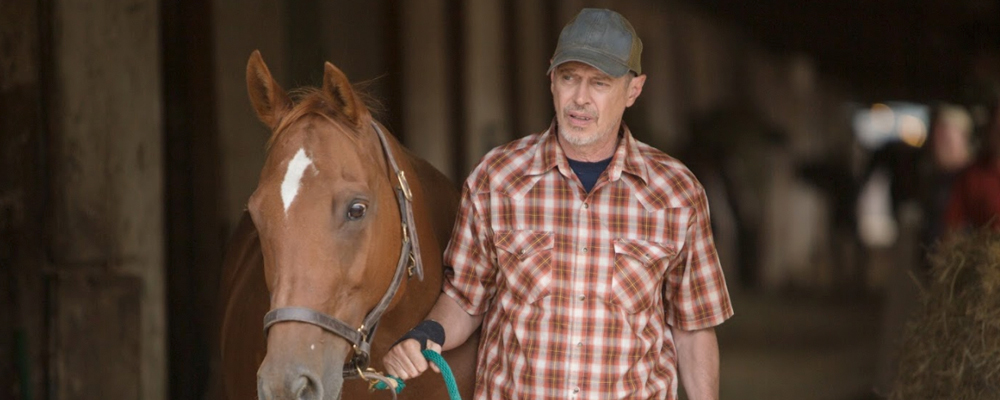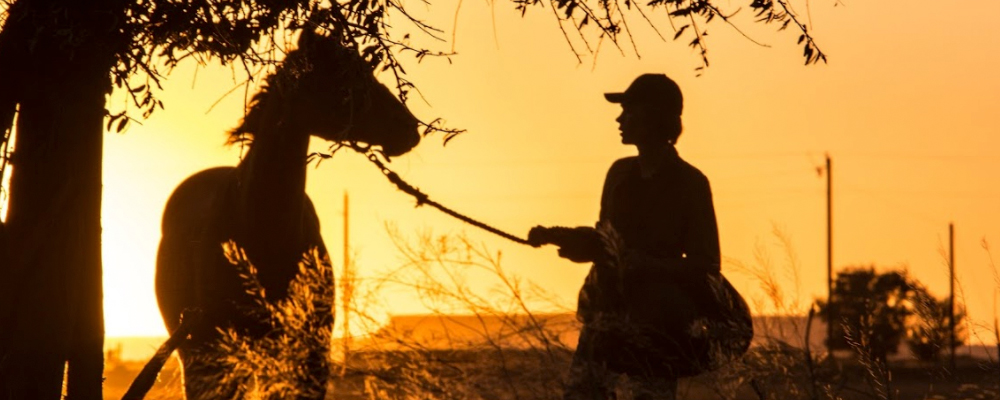‘Lean on Pete’ Is a Poetic, Endearing Story of Loss and Discovery
Alci Rengifo
“Lean on Pete” has the authenticity of lives being experienced on the screen. It could have chosen to tell its story with a dozen clichés and a hundred worn formulas, but instead it settles on an engrossing, patient style. This is a movie about real people, how they live, suffer and can find solace in the simple things. What seems at first to be a typical film where a character bonds with an animal turns into a meditation on rural America, then into a harrowing journey into the underbelly of its streets and battered communities. But this isn’t a message movie, although it has powerful things to say, it is a rich story about a boy suddenly thrown into adulthood.
Charley (Charlie Plummer) is a 15-year-old high schooler in the backlands of Portland, Oregon living with his single father Ray (Travis Fimmel) in struggling economic conditions. Charley is the quiet, introverted sort while Ray indulges in risky womanizing. While out on a run Charley comes across a local racetrack and strikes a working relationship with a grumpy horse owner named Del (Steve Buscemi). Del goes from town to town with a jockey, Bonnie (Chloë Sevigny) making what he can from racing his stock. Charley starts working with the pair and grows close to one of the horses, Lean on Pete. But Charley’s home life takes a sudden, dark turn when one of Ray’s affairs gets him into serious trouble and an angry husband comes to get revenge. Charley is left on his own. When he discovers Del plans to sell Lean on Pete, he makes the bold choice to run off with the horse and try to locate an aunt living in Wyoming.
Director Andrew Haigh establishes the world of this story with a poetic eye similar to early Terrence Malick films like “Badlands.” The vast Oregon terrain is awash in magic hour light, or cold with a sparse, human presence. There is almost the feel of a modern-day western except it lacks cheap heroics. Bars have a smoky, low-lit atmosphere and the faces of extras could be taken from a John Steinbeck novel, or films like “Of Mice and Men.” When Charley begins his odyssey with Pete, cinematographer Magnus Nordenhof Jønck shoots the Oregon plains they must travel with a stark realism that is beautiful. Once the film follows Charley into the bowels of urban decay the light is ominous and threatening. “Lean on Pete” becomes a trip through various spectrums of the American underclass, from the farmlands into the corners where the homeless seek shelter. What connects the two in this movie is that they are becoming scattered, migrating communities in a vast country.
Haigh pulls you in by letting us get to know these characters and their environment. His screenplay, adapted from a novel by Willy Vlautin, has the eloquence of everyday talk. Moments such as when Ray gives Charley dating advice about waitresses feel so real it could be a documentary. In another wonderful scene Del buys Charley lunch and is astonished at his bad table manners. Del comes across as one of those blunt talkers who can fire a hurtful dart, but for someone like Charley such a mentor could prove to be a valuable life teacher. Part of this film’s special achievement is that it manages to discard traditional story structures and evokes the way we come across different people in life, taking and learning as we go. Every character feels like an individual with a back story and life lived. While wandering the plains Charley comes across a farm where two young men idle away, one of them is an Iraq war veteran who recounts the carnage he witnessed in the war. The subtly of the scene is brilliant, the haunted tone of the delivery saying everything about his doubts and affected psyche. When Charley shacks up with a homeless couple in the city that he perceives to be friendly bad things eventually happen, but it is done in a harrowing way where Charley is simply learning that life can be a jungle. The ending is another special touch. Haigh could have easily gone the Hollywood route, but instead he closes this story with a moment of complete, powerful emotional punch. It is not a sad ending, but a cathartic one.
The performances in this film are a great achievement in themselves. Plummer’s Charley is played without a single false note. He brilliantly creates a young man who is smart but quiet, kind but learning, naïve in that way many are at 15, but forced to grow up quickly. Buscemi is a great grump as Del, bringing to life a man who has seen a lot already and so has no patience for fools. Chloë Sevigny’s Bonnie has that special maturity of individuals who can provide escape from an overbearing teacher like Del. This is one of her best roles in years. Every other performance is like a persona taken from a scrapbook of American life.
“Lean on Pete” invites the viewer to settle down and let themselves be taken in by the story, its people and world. It is that rare film that captures much of American life as it is truly lived in those vast, middle zones of the country, yet its lessons are the kind we all face wherever we settle down. This film is a human endeavor shared with much heart and poetry in its frames.
“Lean on Pete” opens April 6 in select theaters.

